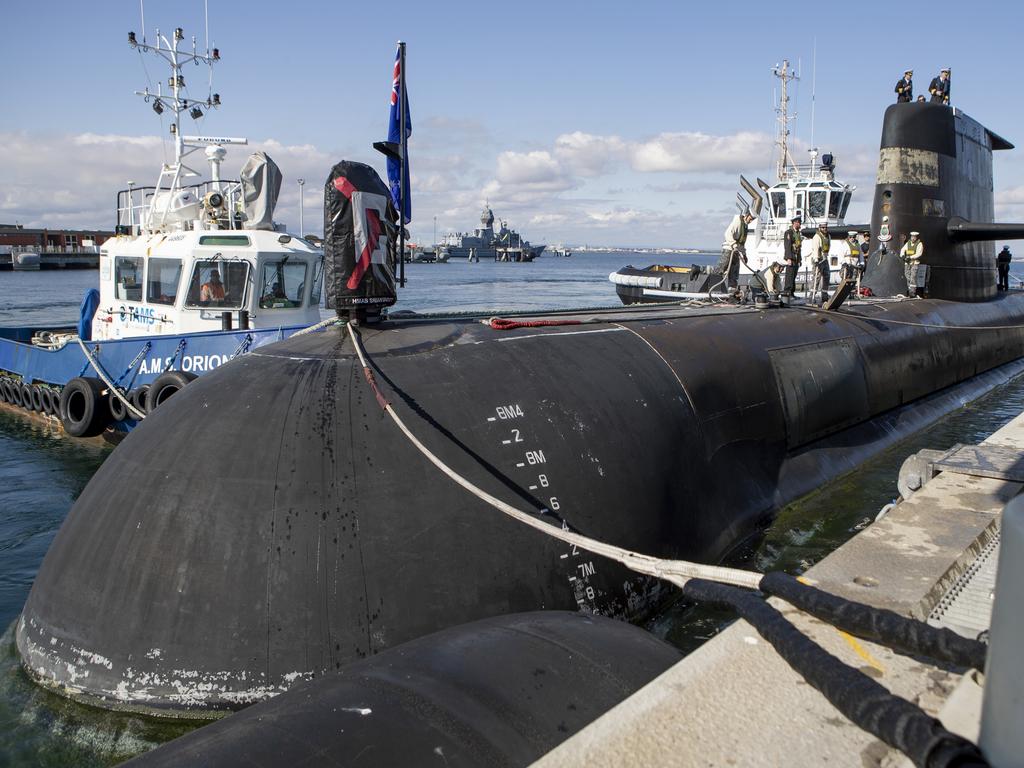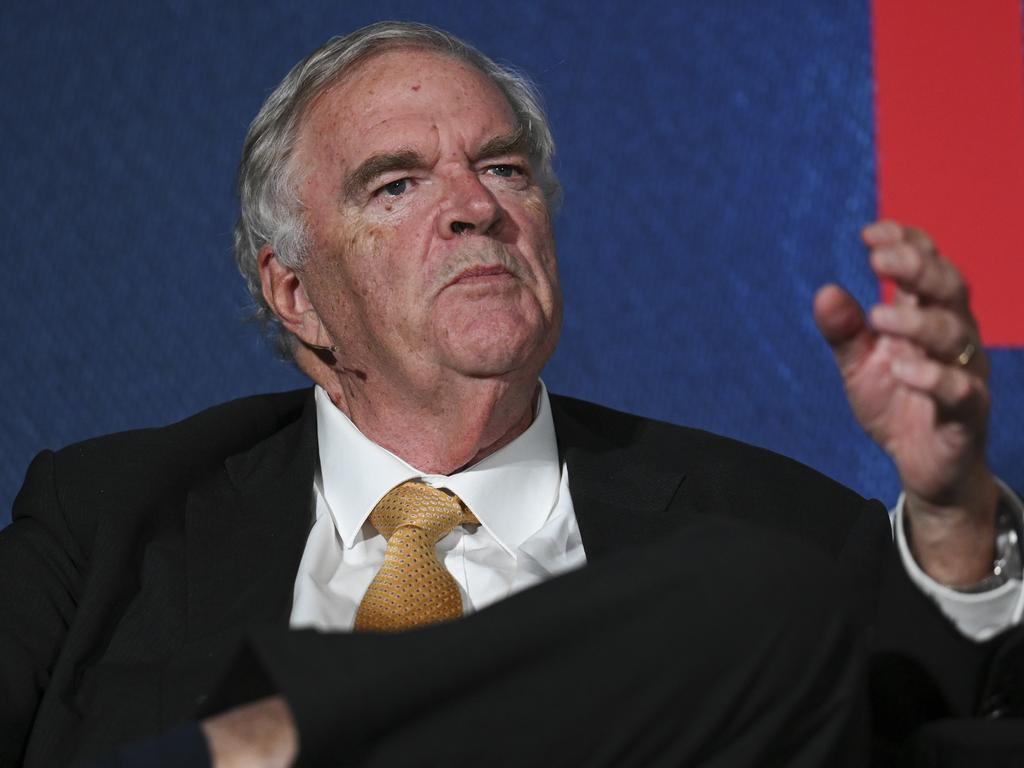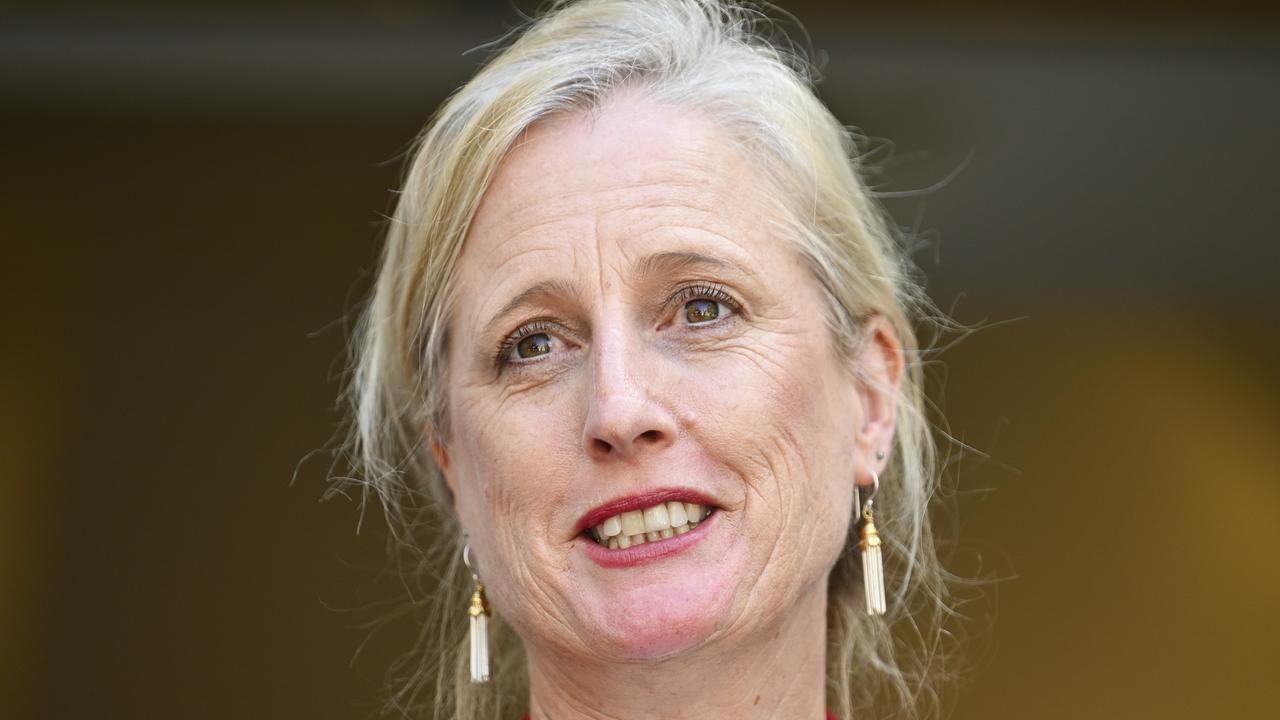Defence in decade-long ‘holding pattern’ before new capabilities arrive, report warns
The Albanese government’s defence plans won’t improve the nation’s military capabilities for at least a decade, a new report has warned, amid fresh threats by China.
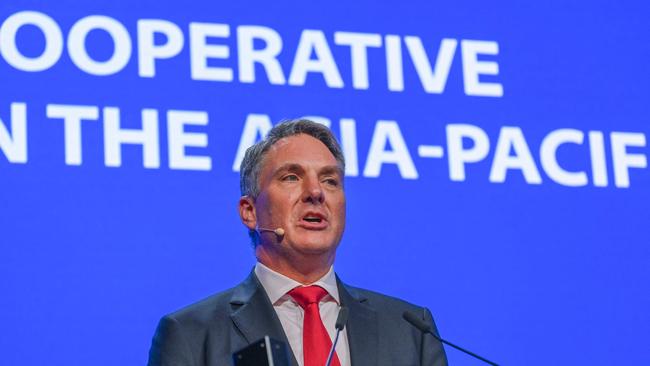
The Albanese government’s defence plans won’t improve the nation’s military capabilities for at least a decade, a new report has warned, as China ramps up threats of war with a vow to “crush” foreign forces that back Taiwan’s independence.
The Australian Strategic Policy Institute’s budget analysis says despite the government’s “rhetorical urgency”, defence spending is in a “holding pattern” and offers no credible pathway to acquiring new weapons such as killer drones.
“If war were to break out at any time in the next 10 years, our military would essentially fight with the force it has today,” the report says. “Based on current resourcing, nothing significant will change over the decade.”
The warning comes as a long-running Lowy Institute poll reveals 70 per cent of Australians believe China will become a military threat within two decades, with major cyberattacks and the prospect of a war over Taiwan rated as voters’ most pressing national security concerns.
The risk of conflict was underscored over the weekend by China’s Defence Minister, Dong Jun, who told a major defence conference that the prospect of Taiwan’s peaceful reunification with China was being “eroded”, and his forces were ready to “forcefully” prevent the territory’s independence.
“Whoever dares to split Taiwan from China will be crushed to pieces and suffer his own destruction,” Admiral Dong told Singapore’s Shangri-La Dialogue.
Admiral Dong also accused the US’s key regional ally, The Philippines, of deliberately provoking Beijing in the South China Sea, warning “there is a limit to our restraint”.
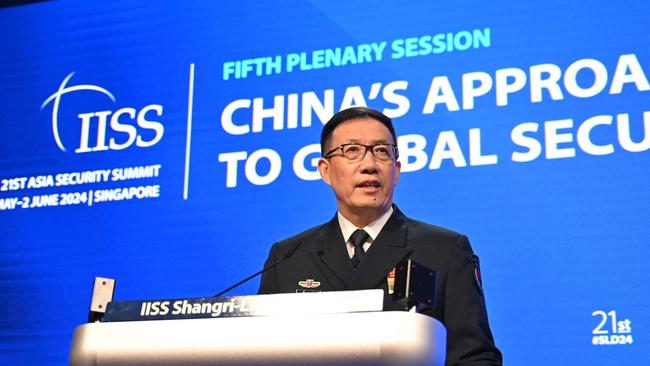
But US Defence Secretary Lloyd Austin pushed back, warning Beijing not to test his country’s “iron-clad” defence treaty with Manila, and declaring US ships would sail wherever international law allowed.
Defence Minister Richard Marles used his speech to the dialogue to lash China’s bullying of The Philippines, its intimidation of Taiwan, and harassment of Australian ships and aircraft.
Mr Marles confronted Admiral Dong in a closed-door meeting over China’s unsafe conduct in international territory, calling out a Chinese jet’s move to drop flares in front of an Australian helicopter just weeks ago in the Yellow Sea.
He refused to say what Admiral Dong’s response was, but declared Australia would not be deterred from undertaking freedom-of-navigation operations in the region.
ASPI’s Cost of Defence report warns that despite bipartisan consensus Australia no longer has 10 years of warning time before a major regional conflict, the nation risks being “too late” in its preparations for war.
The May budget included an extra $5.7bn for Defence over the next four years, and $50bn more over the decade.
But two thirds of the initial budget boost won’t flow until 2027-28, and all of the additional money will be consumed on just three long-term priorities – the AUKUS submarines, future warships and long-range missiles.
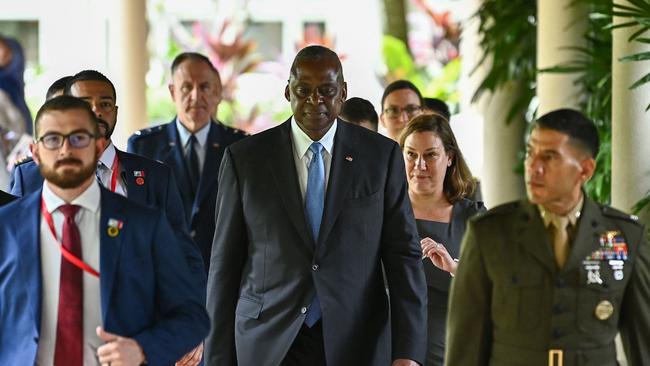
In his forward to the report, ASPI’s executive director, Justin Bassi, says the budget lacks “spending for swift increases in capabilities” that will be needed if the region’s security deteriorates.
He says despite agreement by both sides of politics on the threats the country faces, “the rhetorical urgency is not being matched by action in the form of defence investment”.
While other countries “are furiously pursuing new capabilities” such as masses of small drones, Australia is failing to grasp the opportunities presented by smart, uncrewed technologies, Mr Bassi says.
“We talk about technology and asymmetric advantage – playing to your strengths and finding effective means to exploit an opponent’s weaknesses – yet we lack a credible pathway to bring them into operation to bolster the force we have today,” he says.
“AI, robotics, electronic warfare and space capabilities remain aspirational, without any pathway for inclusion and integration into a truly focused force capable of meaningful deterrence and warfighting.”
Highlighting the shock the war in Ukraine has had for European nations, Mr Bassi says “hoping that conflict won’t come is not a viable strategy”.
“As a nation, we need to accept the need for higher defence spending. If we are prepared for war, we have a better chance of deterring and hence averting it,” he says.
“This is not doom-mongering; the government has acknowledged that the warning time before any conflict, which had long been set at 10 years, has shrunk to effectively zero time.”
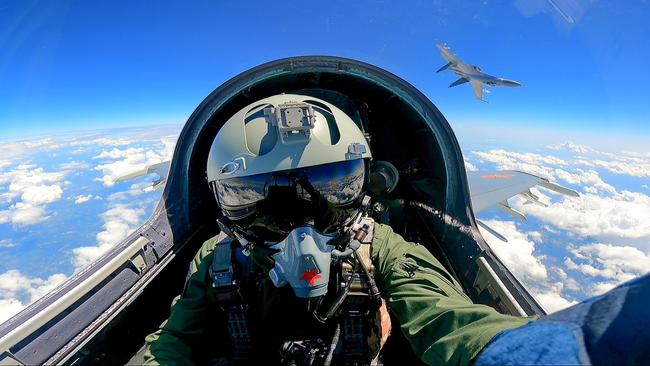
The paper warns the budget’s “pervasive” spending restraint carries major risks, given the government’s demands for sweeping reforms and a new “culture of excellence” within the Defence Department.
It says inflation also remains a threat, with the prospect that the small growth in Defence spending will be “swallowed up” by higher costs.
“Even without inflation defying the current optimistic predictions, domestic and international supply chain pressures alongside rising wages and decreasing national competitiveness due to labour costs will create currently unrecognised additional funding pressure for Defence,” the report says.
The report follows revelations in Senate estimates on Friday that half of the nation’s Collins-class submarine fleet will be out of service for months, and that two of the boats are showing corrosion in areas where it has not previously been found.
The Lowy Poll, now in its 20th year, found just 17 per cent of Australians trust China to act responsibility, and even fewer (12 per cent) believe Xi Jinping will do the right thing in world affairs.
Most Australians (83 per cent) support the nation’s alliance with the US, but 75 per cent believe it could draw the country into a war in Asia.
Seven in 10 respondents said cyberattacks were a “critical threat”. The prospect of a war between the US and China over Taiwan was rated as the next highest threat (59 per cent), followed by the risk of military conflict in the South China Sea (57 per cent).
The poll found two thirds of Australians would prefer seeing Joe Biden re-elected, with just 29 per cent backing Donald Trump.
Former defence minister Kim Beazley sounded the alarm last week over the nation’s strategic plight, telling The Australian’s Defending Australia dinner that the ADF could no longer defend the country without US help.
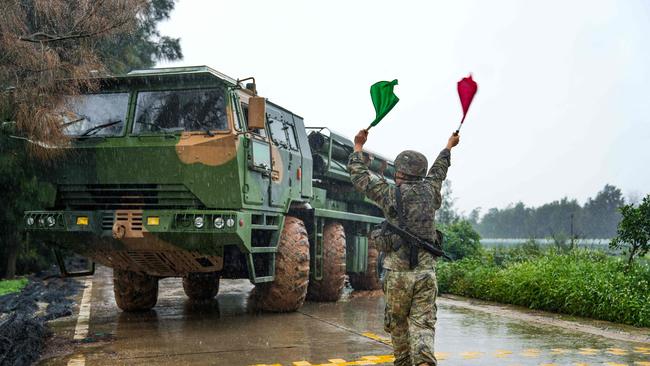
Mr Marles defended the government’s management of the Defence portfolio in an address to the same dinner.
He said in its first two years the government had reassessed the nation’s strategic posture and “dramatically increased Defence funding in the near term” to fund changes to the force.
“I mean, the money that we have won for Defence, not just over the medium term, but over the short term, is of historic significance,” he argued.
“It is the largest increase in decades. Now, people can say, ‘Well, that’s not enough’. Fine.
“But … public money is hard won and it remains the fact that whatever bar people want to set, what we have done is more than has been done for decades now.”



